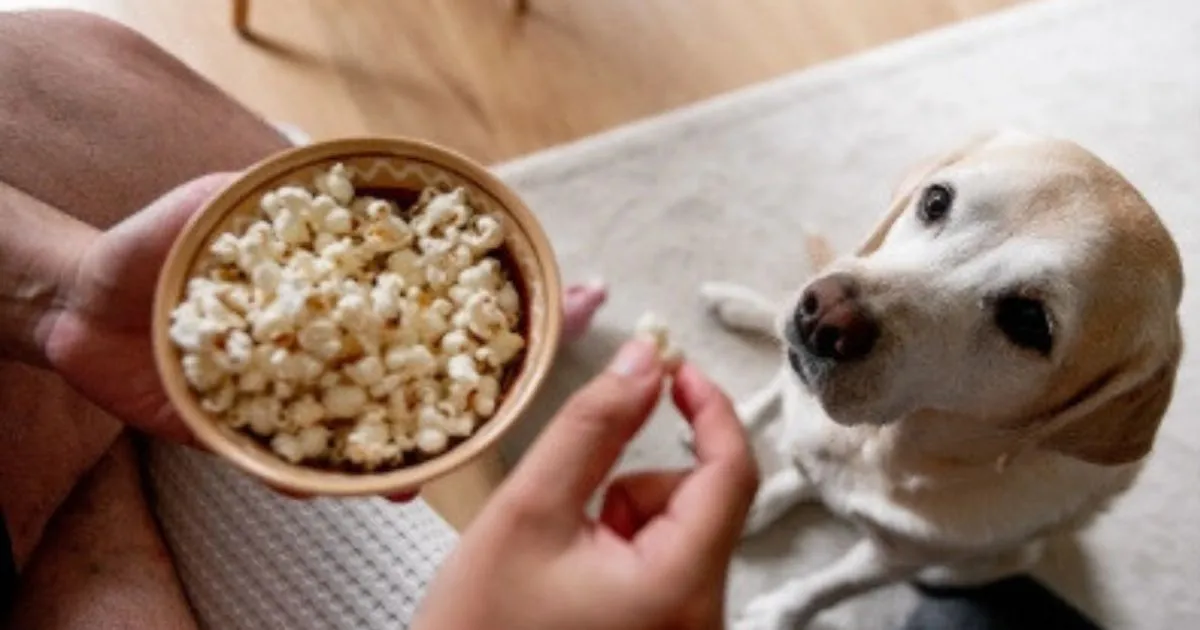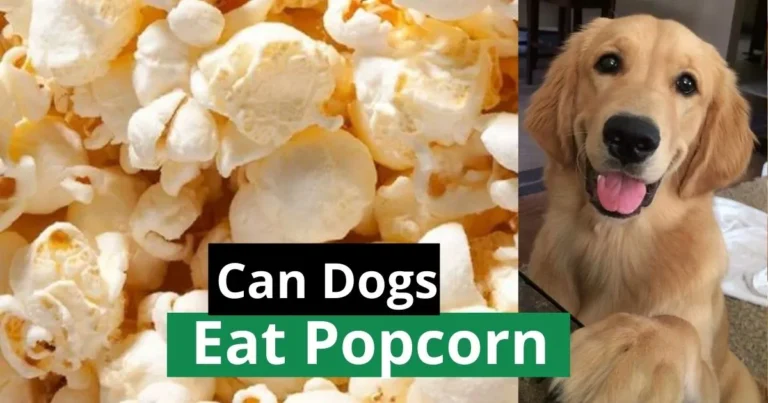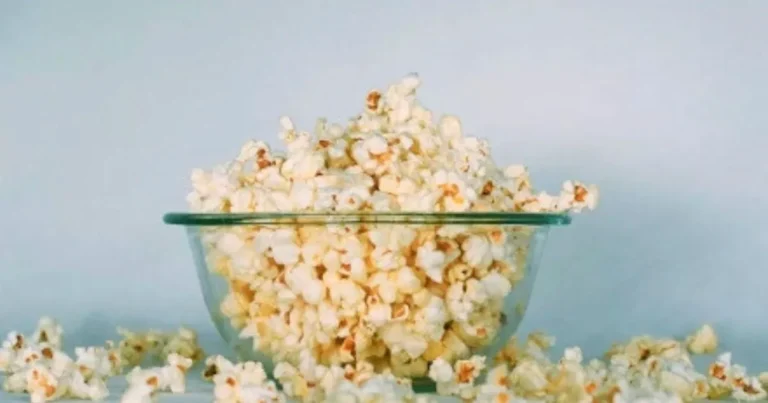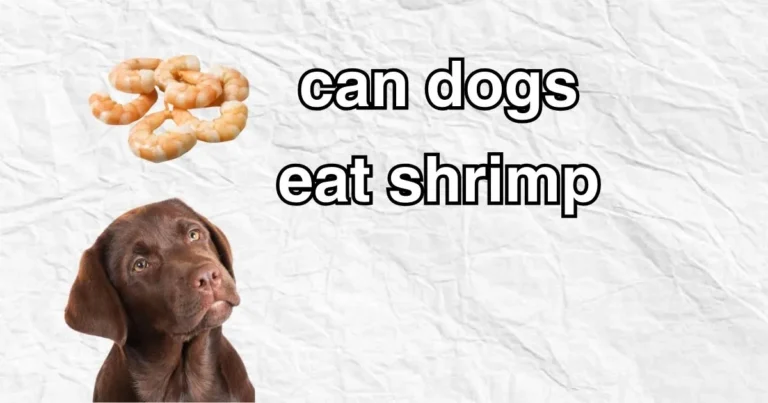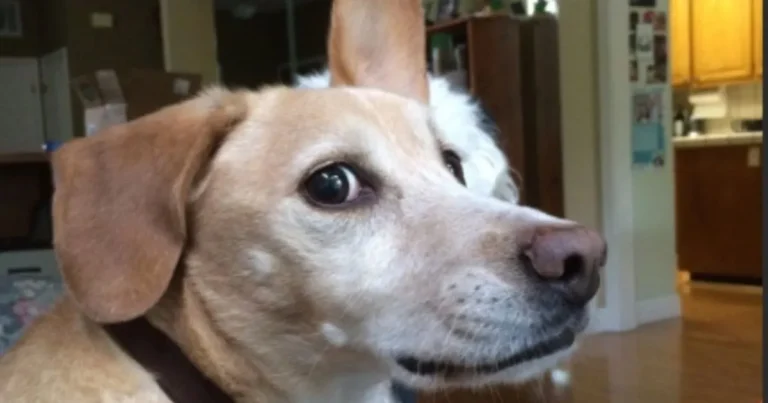Is Popcorn Bad for Puppies? Vet-Reviewed Feeding Advice
Table of Contents
Every dog parent has seen those puppy eyes begging for a snack. Popcorn might seem like a harmless treat, but it’s important to know the risks. This is key for your puppy’s health.
So, is popcorn bad for puppies? The answer is not a simple yes or no. Air-popped popcorn can be okay sometimes, but there are things you need to know before giving it to your dog.
Popcorn and puppies have a tricky relationship. Sharing your snack might seem okay, but some ways of making popcorn can be dangerous. Choking hazards and digestive problems are just a few risks you should watch out for.
In this guide, we’ll explore popcorn safety for puppies. You’ll learn about dangers, how to safely prepare it, and healthier alternatives. Our vet-approved advice will guide you in treating your puppy right.
Understanding Popcorn Safety for Puppies
Keeping your puppy safe from popcorn is very important. Popcorn might seem safe, but it can harm your puppy. It’s key to know the risks of giving popcorn to puppies.
What Makes Popcorn Potentially Dangerous
Puppies have sensitive stomachs that can get upset by the wrong foods. Feeding popcorn to puppies can lead to several problems:
- Choking hazards from unpopped kernels
- Potential digestive complications
- Risk of dental damage
- Potential blockages in the digestive tract
Different Types of Popcorn and Their Risks
Not all popcorn is safe for puppies. The safety of popcorn for dogs depends on how it’s made:
- Buttered popcorn can cause stomach upset
- Salted popcorn may lead to sodium toxicity
- Flavored popcorn contains harmful additives
- Microwave popcorn presents additional chemical risks
Age Considerations for Puppies
Your puppy’s age is very important when it comes to popcorn safety. Young puppies have even more sensitive stomachs. Vets usually say no to popcorn for young puppies.
Is Popcorn Bad for Puppies: Expert Veterinary Insights
Vets usually say no to puppies eating popcorn. It’s important for pet owners to know the risks of popcorn toxicity in puppies. Even plain, air-popped popcorn can be a big worry.
Veterinary experts have many concerns about puppies eating popcorn:
- Choking hazards from kernels and unpopped pieces
- Potential digestive system complications
- Risk of intestinal blockages
- Dangerous additives in commercial popcorn
Popcorn toxicity in puppies isn’t just about the corn itself. Seasoned or flavored popcorn can have harmful ingredients. Salt, butter, and artificial flavors can cause serious health problems.
Dr. Sarah Mitchell, a veterinary nutritionist, recommends avoiding popcorn entirely during a puppy’s critical developmental stages.
Puppies have sensitive digestive systems that are still growing. Eating popcorn can upset their balance and cause long-term health issues. Vets always tell pet owners to choose puppy food over human snacks.
It’s hard to resist sharing your snack with your puppy. But, their health should always come first. Choose puppy treats that are safe and good for their growth.
The Nutritional Value of Popcorn for Growing Dogs
Many pet owners wonder about giving popcorn to their puppies. It’s important to know what’s in this popular snack. This knowledge helps you choose the best food for your puppy.
Popcorn doesn’t have much good for growing dogs. It might seem like a safe snack, but it’s missing key nutrients. These are important for your puppy’s growth.
Vitamins and Minerals in Plain Popcorn
Plain, air-popped popcorn has some nutrients that might catch your eye:
- Trace amounts of B vitamins
- Small quantities of minerals like magnesium
- Minimal dietary fiber
Caloric Content and Portion Control
Keeping your puppy’s diet balanced is key. Popcorn can add too many calories to their meals.
| Popcorn Type | Calories per Cup | Nutritional Impact |
|---|---|---|
| Air-popped, Plain | 30 calories | Low nutritional value |
| Buttered Popcorn | 55 calories | Potentially harmful |
Impact on Puppy Development
Your puppy needs nutrient-dense foods for growth. Popcorn doesn’t help much with muscle, bone, or overall health. Vets say to stick with puppy diets made for their needs.
While a few plain, unsalted kernels are okay, popcorn shouldn’t replace your puppy’s balanced diet. Vets have the best advice for your puppy’s nutrition.
Common Popcorn Hazards for Young Dogs
Popcorn can be dangerous for puppies. It’s important to know which foods are harmful. Unpopped kernels are especially risky for young dogs with developing teeth and sensitive stomachs.
- Choking Hazards: Unpopped kernels can get stuck in a puppy’s throat
- Potential dental damage from hard, unpopped kernels
- Digestive tract blockages
- Risk of intestinal complications
Small breed puppies are at even higher risk. Their small airways and delicate stomachs make them more prone to problems.
| Popcorn Risk | Potential Impact on Puppies |
|---|---|
| Unpopped Kernels | Choking, Dental Damage |
| Seasoned Popcorn | Salt Toxicity, Digestive Issues |
| Buttered Popcorn | Gastrointestinal Upset |
Vets advise against giving popcorn to puppies. The dangers outweigh any benefits. Always put your puppy’s safety first when choosing treats.
Safe vs. Unsafe Popcorn Preparations
Understanding the different ways popcorn is made is key to keeping your dog safe. Not all popcorn is safe for puppies. Some can be very harmful.
How popcorn is made affects its safety for dogs. You want to give your puppy a treat that’s safe and healthy.
Air-Popped vs. Microwave Popcorn
Air-popped popcorn is the safest choice for dogs. Here’s why:
- Air-Popped Popcorn: Safest option for dogs
- Microwave Popcorn: Potentially dangerous due to additives
- Kernels: Can be a choking hazard for puppies
Dangerous Additives and Seasonings
Puppies are very sensitive to bad ingredients. Stay away from these:
- Salt: Can lead to sodium ion poisoning
- Butter: High in fat, potentially causing digestive issues
- Artificial flavors: May contain toxic compounds
- Caramel or sweet coatings: Unnecessary sugar intake
Best Preparation Methods
To keep popcorn safe for dogs, follow these steps:
- Use a plain air popper
- Remove all unpopped kernels
- Serve in small, moderated quantities
- Cool popcorn completely before serving
Remember, popcorn should be a rare treat, not a regular food. Always talk to your vet before adding new foods to your puppy’s diet.
Signs of Popcorn-Related Problems in Puppies
It’s important to know the signs of popcorn toxicity in puppies to keep them healthy. Some puppies might have mild to severe reactions after eating popcorn.
Look out for these symptoms of popcorn-related health issues:
- Gastrointestinal distress including vomiting and diarrhea
- Sudden changes in appetite or water consumption
- Visible abdominal discomfort or bloating
- Lethargy or unusual weakness
Popcorn toxicity in puppies can show several warning signs. Choking is a big risk for young dogs, especially with unpopped kernels or big popcorn pieces.
Your puppy might face serious problems if they eat:
- Seasoned or buttered popcorn
- Large amounts of popcorn
- Popcorn with added salt or artificial flavors
If your puppy shows persistent symptoms or severe reactions, get them to the vet right away. Watching your puppy closely after they eat popcorn can help avoid health problems.
Alternative Healthy Snacks for Puppies
Choosing the right snacks for puppies is key for their growth. Popcorn isn’t the best choice, but there are many healthy options. These snacks can make your puppy happy and healthy.
Vets suggest many safe and tasty snacks for young dogs. These snacks give important nutrients and let puppies chew and explore.
Age-Appropriate Treat Options
Here are some good snack choices for your puppy:
- Fresh vegetables like carrots (crunchy and low-calorie)
- Small pieces of apple (without seeds)
- Lean, cooked chicken chunks
- Specially formulated puppy training treats
Veterinarian-Recommended Alternatives
Here’s a guide to safe puppy snacks:
| Snack Type | Nutritional Benefits | Age Suitability |
|---|---|---|
| Carrot Sticks | Vitamin A, Fiber, Low Calorie | 8 weeks and older |
| Cooked Sweet Potato | Vitamin C, Beta-Carotene | 12 weeks and older |
| Freeze-Dried Liver Treats | Protein, Essential Nutrients | 10 weeks and older |
Start with small amounts of new snacks. Always check with your vet. They can help pick the best snacks for your puppy’s needs.
How to Introduce Popcorn to Your Puppy Safely
Introducing popcorn to puppies needs careful thought and a careful plan. Puppies might be curious about this crunchy snack. But, pet owners must follow certain steps to keep their furry friend safe.
Before giving popcorn to your puppies, remember these important steps:
- Consult with your veterinarian first
- Choose plain, air-popped popcorn without seasonings
- Start with extremely small quantities
- Observe your puppy’s reaction closely
When introducing popcorn, moderation is key. Start with a few kernels and watch for any signs of discomfort or allergic reactions. Puppies have sensitive stomachs. So, introducing it slowly helps avoid health problems.
Proper preparation is key when sharing popcorn with puppies. Make sure kernels are fully popped and remove any hard pieces that could choke them. Avoid adding butter, salt, or other seasonings that could harm your puppy’s health.
“Always prioritize your puppy’s nutritional needs over treat novelty,” recommends veterinary nutritionists.
Remember, popcorn should not replace your puppy’s balanced diet. Treat it as an occasional, small snack, not a main food. Your puppy’s main diet should be high-quality, age-appropriate dog food recommended by experts.
Understanding Choking Risks and Prevention
Feeding popcorn to puppies can be dangerous, especially because of choking hazards. Small puppies are at high risk of choking on unpopped kernels and large popcorn pieces.
The main choking risks for puppies include:
- Unpopped kernels that can get stuck in a puppy’s throat
- Large, hard popcorn pieces that are hard to swallow
- Sharp edges from partially chewed kernels
It’s important to know the signs of choking in puppies. Look out for these signs:
- Extreme distress or panic
- Pawing at the mouth
- Difficulty breathing
- Excessive drooling
- Bluish tongue or gums
To avoid the dangers of popcorn for puppies, follow these steps:
- Always watch your puppy while they eat
- Take out unpopped kernels before giving popcorn
- Make popcorn into tiny pieces
- Look for safer snack options
If your puppy chokes, act fast. Learn how to do pet first aid or call your vet right away.
When to Contact Your Veterinarian
Puppy owners need to watch out for popcorn toxicity in puppies. Knowing when to get help from a vet is key to keeping your pet safe and healthy.
It’s important to spot serious symptoms after popcorn. Some cases need vet care right away.
Emergency Situations Requiring Immediate Care
- Persistent choking or difficulty breathing
- Continuous vomiting or diarrhea
- Visible signs of intestinal distress
- Sudden lethargy or weakness
Monitoring Your Puppy’s Reaction
Keep an eye on your puppy after they eat popcorn. Look out for these warning signs:
- Excessive drooling
- Abdominal pain or bloating
- Changes in appetite
- Unusual whimpering or discomfort
If you see any concerning signs, call your vet right away. Quick action can stop bigger health problems.
Preventive Measures and Training Tips
To keep your puppy safe from popcorn risks, you need to act early. Start by setting clear rules and training your puppy to avoid harmful snacks. This is the first step in popcorn safety for dogs.
Teaching your puppy to ignore human food is key. Here are some important steps:
- Create a consistent feeding schedule for your puppy
- Teach the “leave it” command from an early age
- Reward good behavior with appropriate puppy treats
- Establish designated eating areas for both humans and pets
Prevention is always better than cure when it comes to puppy nutrition. Keep popcorn and other snacks in sealed containers and out of reach. Make sure everyone knows not to give your puppy human food.
“A well-trained puppy is a safe puppy” – Veterinary Nutrition Experts
Here are more safety tips:
- Use child-proof locks on pantry cabinets
- Clean up food areas immediately after eating
- Practice consistent training techniques
- Supervise interactions between puppies and food
Remember, keeping your puppy safe from popcorn requires constant effort. Every training session helps build a strong bond between you and your puppy. This ensures their health and happiness.
Conclusion
Is popcorn bad for puppies? The answer is yes, with caution. Your puppy’s health is always first. While plain popcorn isn’t toxic, the risks are too high for any benefits.
Being a responsible pet owner means choosing wisely for your puppy’s diet. Experts say no to popcorn for puppies. It’s too risky, with choking hazards and digestive problems.
Always talk to your vet for diet advice. They know what’s best for your puppy. They can help pick safe, nutritious treats that are good for your puppy’s growth.
Your puppy’s health is in your hands. Choose safe, vet-approved snacks for their growth and happiness. Being careful and informed will keep your puppy healthy and happy.

